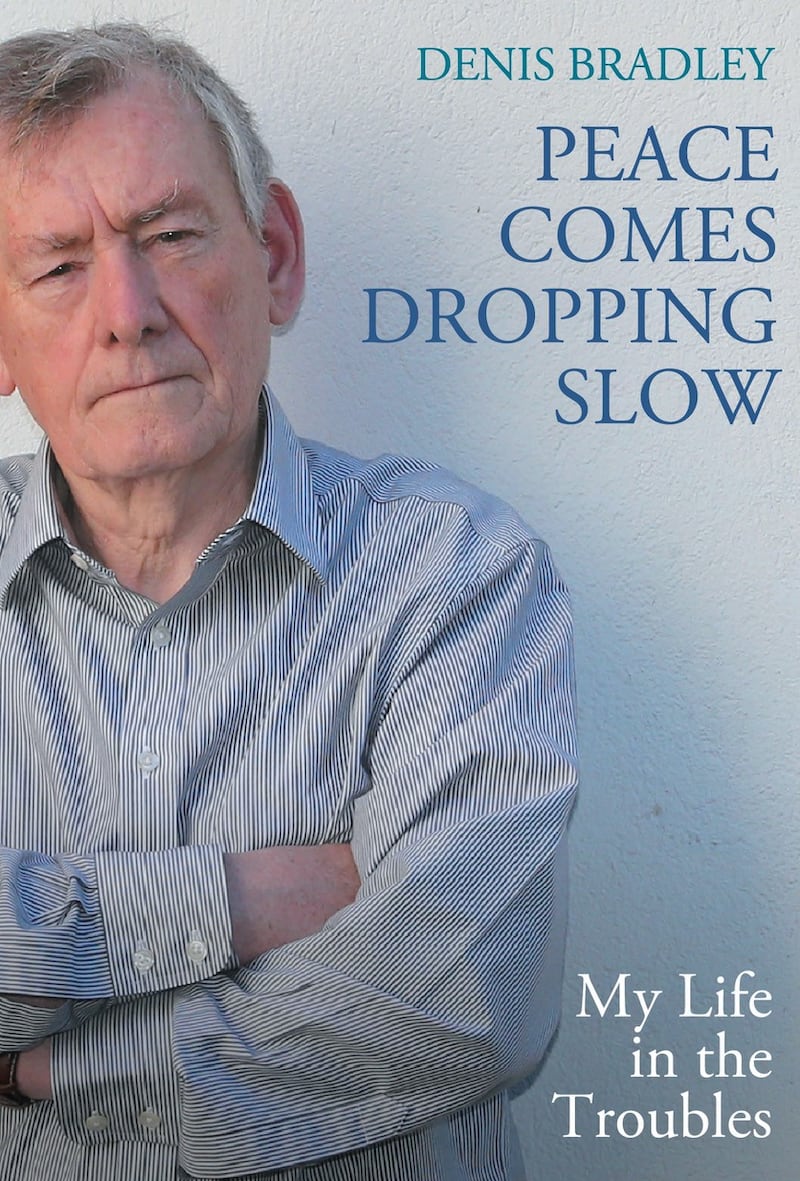One of the men who made the peace process possible has raised strong concerns about the British government’s contentious Legacy Act.
Denis Bradley, former Co-Chair of the Consultative Group on the Past, was speaking weeks before the British government’s controversial legacy legislation ends all Troubles-related civil cases and halts inquests that are not at their findings stage.
Last month a High Court judge ruled that conditional immunity and plans to close down some civil actions are unlawful, while the contentious legislation is being challenged by the Irish government at the European Court of Human Rights.
From May 1 all legacy cases will be transferred to the Independent Commission for Reconciliation and Information Recovery (ICRIR).

Many victims and relatives are opposed to the ICRIR and believe it is designed to protect state actors from accountability.
Mr Bradley has recently penned a new book Peace Comes Dropping Slow: My Life in the Troubles, about his role in a backchannel between the republican movement and British government in the lead up to the peace process.
The former Catholic priest believes the act, which has faced cross-community opposition, falls well short.
“I think that the Conservative Party looked after the Conservative Party and I think that’s part of what I call the partials – a meeting of the needs of legacy,” he said.
“Within legacy if you do partial you don’t do what is necessary, it’s not wholesome, it’s not complete enough and therefore you are catering for on particular constituency only.”
The Conservative Party suggested the Northern Ireland Office (NIO) should be contacted.
A Northern Ireland Office spokesperson said: “The legislation provides a framework to deliver effective legacy mechanisms for victims and families, while complying with our international obligations.
“A number of government amendments were adopted to the legislation to: provide greater assurance regarding compliance with our international obligations; enhance the independence of the new Commission; provide a greater focus on the interests of victims and families; and strengthen provisions related to the process for granting immunity from prosecution.”
The new Commission, they added, was making good progress in establishing itself, including its operational practices and procedures.
Established in 2007, the Consultative Group on the Past was set up to examine ways of dealing with the legacy of the Troubles.
Mr Bradley co-chaired the group along with Church of Ireland Archbishop Robin Eames, which later produced a series of recommendations, including that relatives of those who died should receive a one-off payment of £12,000.
The Derry native said he also has “grave reservations” about the ICRIR adding he does not know what he would do if he was in the predicament some families impacted by the Troubles now find themselves in.
“I think that the people involved around that (ICRIR) are very good people, I have a lot of regard for them,” he said.
“Does the structure in itself meet the needs?
“I have grave reservations, but, if it helps people, well then, I am not going to be too critical.
“And if people decide not to go down that road, then it will not work.
“And if people decide it offers me something, well then, I will be very reluctant to make too many strong judgments around it.
“Because we have created a swamp around legacy, a complete swamp.
“Anything that helps, some people to get out of that swamp, I won’t be too critical.”
A spokesman for the ICRIR said: “Engagement is important and the commission is giving every opportunity for people to input to how it will work, such as its current consultation exercise which people can respond to until May 10,” he said.
“Starting from next month individuals will be able to contact the commission about their case and we will use this further engagement to inform our phased start to meeting with them and investigating their cases.”
Peace Comes Dropping Slow: My Life in the Troubles by Merrion Press is available to buy now.







